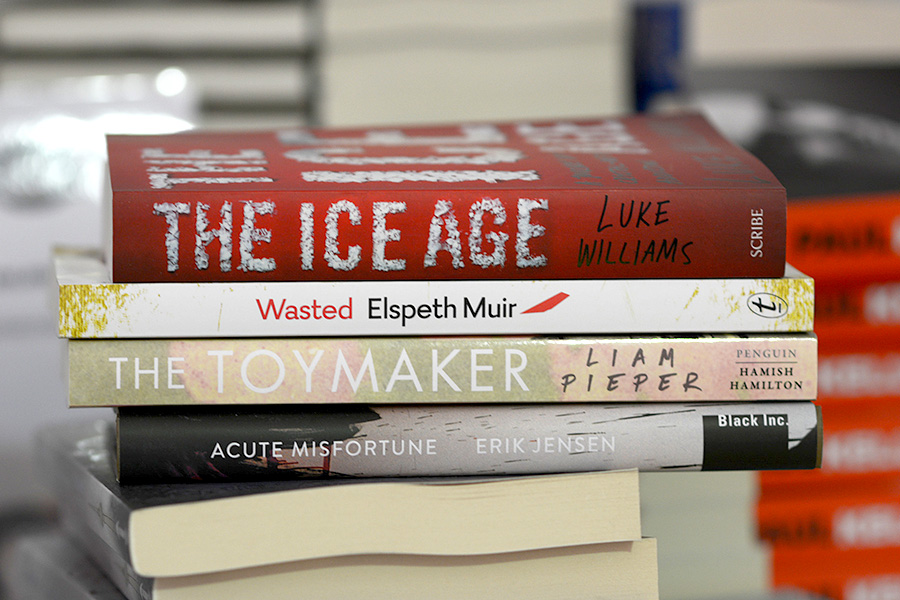Understanding addiction through creativity

There is an idea perpetuated throughout society that creativity and addiction are intrinsically linked. The self-reflexive nature of creativity causes people to spiral into a world of drug and alcohol abuse (and subsequent addiction) which, in turn, benefits their artistry.
But often creativity assists in overcoming or coping with an addiction, as a kind of therapy. Perhaps we all have the potential to be creative without abusing drugs and alcohol.
The Addiction and Creativity panel members at Byron Writers Festival 2016 all had differing experiences with addiction, and would agree that creativity and addiction are not dependent on each other.
Session chair Erik Jensen, The Saturday Paper editor and author of Acute Misfortune: The Life and Death of Adam Cullen, wondered where the panel thought creativity came from, if not born out of addiction.
Liam Pieper, author of The Feel-Good Hit of the Year, admitted that he had no idea where his creativity came from.
‘If I had a better idea, I’d write books more often!’ Pieper joked.
Ultimately, however, Pieper came to writing as a way to navigate through his life. Pieper’s experience as a former drug user and criminal provided the material for his memoir. In this case, his addiction informed his creativity, but was not necessarily its catalyst.
The drug ice is currently an important topic, however chair Eric Jensen suggested few have sufficient knowledge about it. Luke Williams, author of The Ice Age: A Journey into Crystal-Meth Addiction, gained awareness about ice firsthand as a former user and addict.
For Williams, his creativity was a combination of productivity and ego. The drive for him to write was definitely not the same feeling as the drive to take drugs.
Creativity is ‘tied to who I want to be’, said Williams.
Elspeth Muir’s experience was secondhand but traumatic. She wrote of the tragic loss and death of her brother through alcohol abuse in Wasted: A Story of Alcohol, Grief, and a Death in Brisbane.
Her book also deals with the culture of drinking in Australia and said that frequently ‘individuals are blamed for the problem, not the alcohol’.
Muir said her creativity comes from seeing patterns and connecting things that either others can’t see or perhaps don’t exist.
While each panel member used their creativity to write about addiction, they unanimously believed creativity and addiction are not reliant upon one another.
Williams stated that he didn’t think it was necessary to become addicted to ice in order to write about it, particularly since in the midst of his addiction it was difficult to see others points of view.
‘Creativity has a productive end…addiction doesn’t,’ said Williams.
Pieper pointed out that, statistically, while people who are prone to addiction are also the types of people who become artists, one doesn’t necessarily cause the other. He went on to say that it is not only erroneous to link addiction to creativity, but dangerous.
When the audience were allowed to ask questions of the panel, a former drug addict opened up about her and her late ex-husbands experience with drugs. She expressed a desire to disperse the myth that drugs benefit creativity, which was met with applause from the audience and panel members.
This prompted Jensen to ask the panel if they thought creativity was a ‘balm’ to fix addiction.
‘Storytelling is extremely powerful,’ said Muir, admiring its ability to turn a chaotic and incomprehensible situation into something more ordered.
Williams felt that telling his story allowed him to learn more about addiction overall, as well as aiding in his recovery.
Compared to a life of addiction and crime, Pieper said that creativity is ‘a more positive way to spend your time’.
Addiction and creativity overlap in many instances. Creativity, however, can be an important tool in removing the layer of addiction and providing a meaningful insight into a world that many do not understand.
Lachlan Rutherford is a Bachelor of Arts (Honours) student at Southern Cross University. He completed his Honours thesis on David Foster Wallace’s fiction this year.
